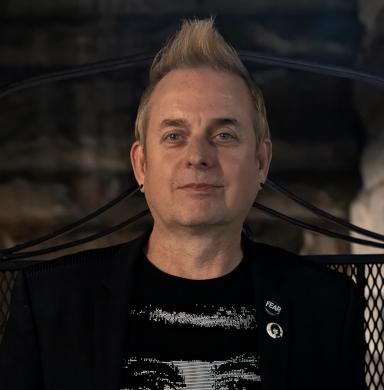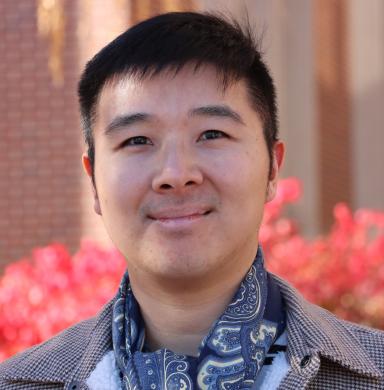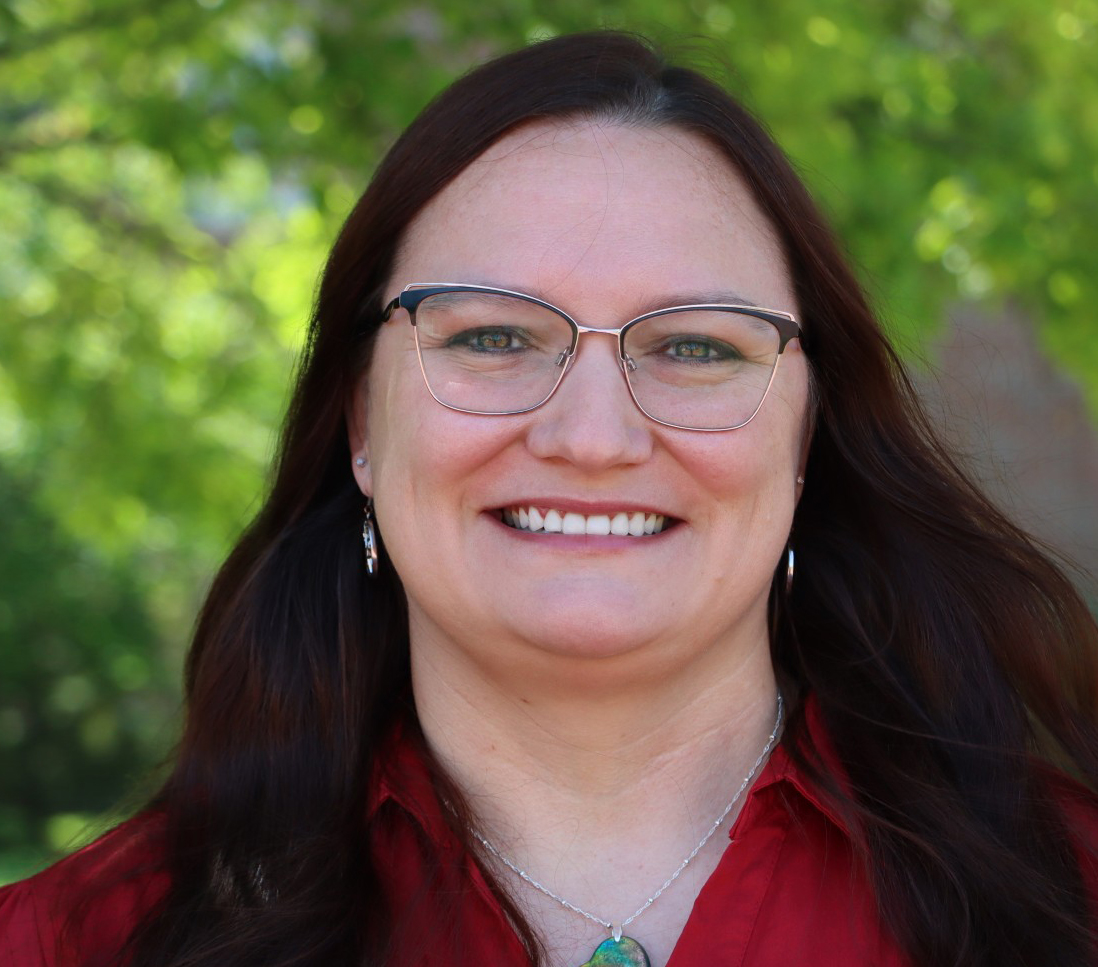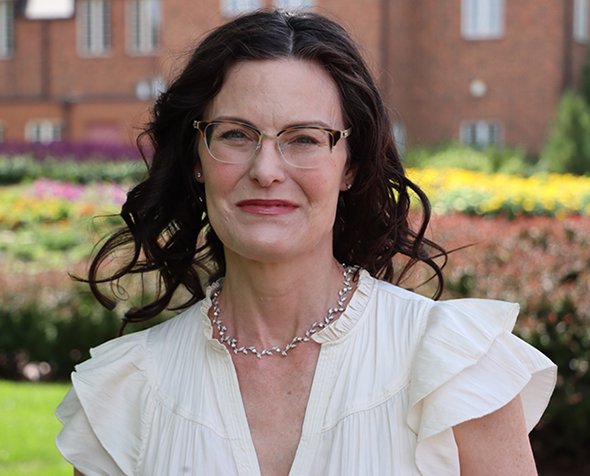CAHSS Classes that Scream Scary
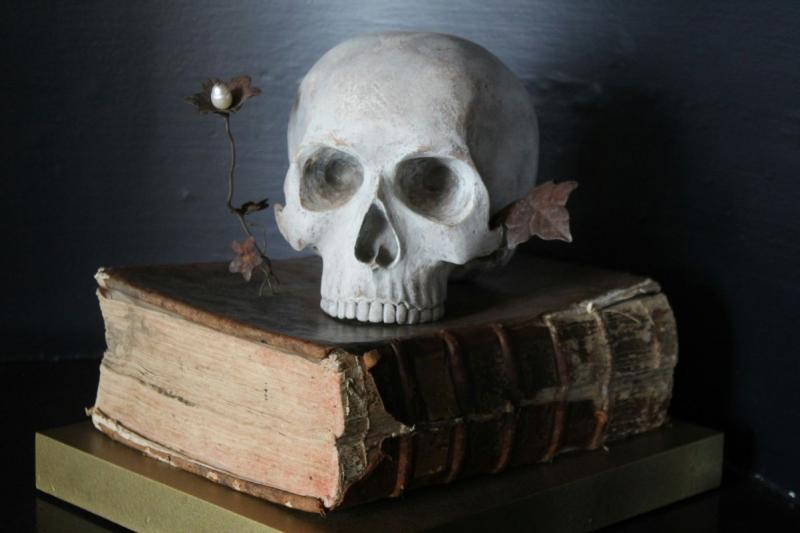
In this season of all things pumpkin-spiced and scary, "CAHSS" News turned to some College of Arts, Humanities & Social Sciences (CAHSS) faculty members who study horror storytelling from various angles and cultural perspectives and teach courses devoted to diving into the genre’s murky depths. Here’s a roundup of a few CAHSS classes that scream scary, along with personal recommendations for scary reads and watches from our resident experts — Happy Halloween everyone!
Rachel Feder, associate professor, English & Literary Arts
Focused on British Romantic literature, the history of the Gothic and what monster narratives can teach us about our shared cultural mythologies, Feder explores vampire literature in courses ranging from “Monster Narratives” and “Later Romantic Literature” to “Dracula in Context.” In Winter 2027, she’ll teach a new course, "ENGL 2034 History of Genre: Vampire Literature," tracing the Byronic vampire from the turn-of-the-nineteenth century to our present moment in time. Her class helps students connect contemporary horror works with their gnarled historical roots while examining the role monster narratives play in our lives.
Feder dates her passion for teaching horror back to her grad-school days when Stephanie Meyer’s “The Twilight Saga” young adult book series was casting its spell among her students. “As a grad student TA, I designed a ‘Writing and Literature’ course situating ‘Twilight’ with classic vampire texts like ‘Carmilla’ and ‘Dracula.’ I had no idea, going in, how deep our conversations would get, or how passionate students would be about the way monster narratives simultaneously subvert and reinforce dominant systems and structures.”
She recommends “Atlas of Unknowable Things,” a recently published Gothic mystery/horror novel by DU alum McCormick Templeman. “It’s a real testament to how profound horror can be, and how works of horror can illuminate — lovingly, even — everything that’s worth saving.”
Sergio Macias, teaching professor of Spanish Language, Literary & Cultural Studies
Macias will offer his “SPAN 3702: Mexican Science Fiction and Oral Traditions of Horror” course in Spring 2026. The class examines Mexican science fiction alongside oral traditions of supernatural horror, linking directly to Macias’ research on aesthetics, politics and how genres like sci-fi and horror intersect with questions of race, gender and sexuality. He hopes the class will illuminate “how horror and speculative fiction reflect cultural anxieties, negotiate modernity and create space for marginalized voices.”
His interest in the topic springs from a long-time fascination with how popular culture —legends, comics, films — mirrors society’s fears and desires. A huge fan of the horror genre, he recommends Guillermo del Toro’s 1992 film “Cronos,” calling it “a haunting reimagining of vampirism that blends folklore, history and science with a uniquely Mexican sensibility. It captured me because it demonstrates how horror can be both intimate and political at once.”
Billy J. Stratton, professor, English & Literary Arts
This term, Stratton is again teaching his 2000-level course, “Native American Literature,” but this year with a focus on speculative fiction and horror inspired by the Indigenous futurisms movement. Drawing on Stratton’s expertise in Native American Studies, the class examines how Native/Indigenous/First Nations writers adapt horror conventions — via extra-terrestrial invaders, images of apocalypse, vampires and human monsters — “to explore complex modern themes of decolonization, survival, resistance and cultural resurgence.”
He hopes students leave his course with a new perspective on Native/Indigenous storytelling, “seeing them not as relics of the past but as vibrant, defiant models for the future that transcend traditional stories of trauma, loss and victimization, challenge colonial histories and imagine radical futures where Indigenous peoples thrive.” His class highlights how Indigenous authors and storytellers use horror conventions to confront modern anxieties and breathe new life into traditional stories, historical events and literary texts.
Stratton brings his lifelong interest in horror and sci-fi along with substantial research and writing on the work of writers such as Gerald Vizenor and Stephen Graham Jones (who will be visiting his class to chat with students about his books and Indigenous horror). Stratton recommends Claire Coleman’s "Terra Nullius," a novel that presents Australia’s “Stolen Generation” through a “war of the worlds” scenario, along with a personal favorite — Jones’ novel “The Buffalo Hunter Hunter.” The latter features a Native vampire “who uses their cursed affliction to fight back against the forces of Manifest Destiny and genocidal violence, including buffalo extermination and dispossession.”
Wayne Yeung, assistant professor of Chinese, Languages, Literatures & Cultures
Yeung offered his class “ASEM 2777 Asia’s Supernatural” in spring 2025 and will offer it again in spring 2026 as an honors class potentially open to non-honors students (who check with him by email first). The class springs from his research on Chinese-speaking cultures outside China in which folk beliefs, urban legends or other “weird practices” thrive for a variety of reasons.
When asked what his students take away from the course, Yeung quoted from a recent student’s final assignment. “Whenever people are confronted with chaos, fear, injustice or cultural shifts and try to make sense of them with the limited knowledge that they have, they sense that something supernatural happened. So weird stories about ghosts and monsters aren’t just what ‘they’ believe in, but a mode of thinking ‘we’ take part in without always being aware of it.”
His own interest in the supernatural arises from an inclination toward all things unorthodox. “Ideas about horror or the supernatural help societies deal with unacknowledged ideas or emotions,” he added. “There’s something very democratic about horror that gives people hope that with an original idea well executed, you can win big and reach a wide audience even on a small budget (like the ‘Blair Witch Project’).” He recommends the classic novel “House of Leaves,” by Mark Z Danielewski and “The Wailing,” directed by Na Hong-jin.


